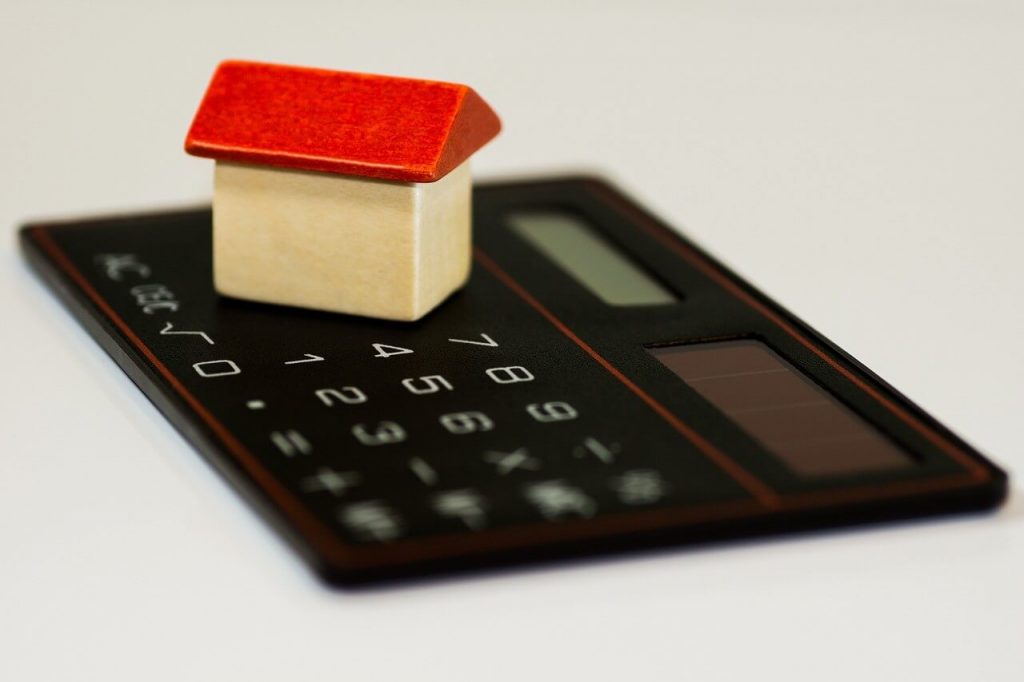What Are The Different Types of Mortgages in Canada?
What Are The Types of Mortgages Available in Canada?
Different types of mortgages options exist in Canada. To gain insights into these choices, understand which might suit your circumstances, and acquire more information, continue reading.
Although the five-year fixed-rate mortgage is popular in Canada, the landscape offers many options. Factors such as interest rates, loan terms, and flexibility are essential considerations when determining the optimal mortgage for your needs.
Determining the most suitable mortgage type for you in Canada hinges on assessing your financial well-being and the criteria set by your lender. What is your current credit score, and how much can you allocate for an initial down payment?
Discover a comprehensive guide covering the spectrum of mortgage options in Canada, including qualification criteria and more. Whether you’re a mortgage professional seeking valuable resources for your clients or an individual seeking information, this is an invaluable tool for understanding the diverse landscape of accessible types of mortgages in Canada.
Canada boasts diverse mortgage options, each tailored to unique needs. Among these alternatives are solutions designed to circumvent penalty fees for contract termination or early repayment. Flexibility becomes crucial unless you intend to maintain home ownership until the mortgage is entirely settled.
Canada offers a range of mortgage types, including:
- Open mortgages
- Closed mortgages
- Portable mortgages
- Assumable mortgages
Let’s explore the various types of mortgages in Canada with a closer examination:
1. Open mortgages
Open and closed mortgages differ in terms of flexibility for extra payments. While open mortgages offer the freedom to make additional payments, it’s crucial to be aware that paying off your mortgage early may have downsides. Open mortgages generally have higher interest rates than closed ones of the same term but provide greater flexibility for those wanting to make extra payments.
You can opt for an open mortgage if:
- Sell your house soon
- Pay off your mortgage soon
Occasionally make additional payments towards your mortgage
2. Closed mortgages
Closed mortgages generally have lower interest rates than open mortgages of similar term lengths. However, closed-term mortgages restrict the annual extra payments you can make towards your mortgage, a feature known as prepayment privilege specified in your mortgage contract. It’s essential to note that not all closed mortgages offer the same prepayment privileges, as these options may vary among lenders.
Consider a closed mortgage if you are looking to:
- Maintain ownership of your home until the end of your loan term
- Ensure that the prepayment privileges offer the flexibility you need for making additional payments according to your preferences
3. Portable mortgages
A transferable mortgage enables you to move your existing mortgage when selling your property to buy another. This covers the interest rate transfer, terms, conditions, and mortgage balance. Consider a portable mortgage if:
- Your existing mortgage offers favourable terms
- You aim to steer clear of penalties for breaking your contract by making early payments
Ensure thorough research, as you could incur a prepayment penalty if your new property costs less than the remaining amount on your home loan, for example.
If you need guidance figuring this out, contact the top mortgage experts in your locality for assistance.
4. Assumable mortgages
With an assumable mortgage, you can take over someone else’s home loan and property or vice versa. However, it’s crucial that the terms of the original mortgage stay unchanged in either scenario.
Considering an assumable mortgage could be a suitable choice if:
- As a homebuyer, if interest rates have risen since you secured your mortgage initially
- If you’re a seller intending to downsize to a more affordable property and wish to sidestep prepayment charges linked to the remaining years on your loan term
Usually, fixed-rate mortgages are assumable, but variable-rate mortgages and home equity lines of credit typically are not. The buyer is interested in assuming the mortgage needs approval from the lender first. Once approved, the buyer takes on the remaining mortgage payments and adheres to the terms and conditions outlined in the contract.
Once more, thorough research is critical. In certain provinces, the seller may still be personally responsible for the assumable mortgage even after selling the home. This means that if the buyer struggles with payments, the lender might call upon the seller to cover the amount.

What is The Most Popular Mortgage in Canada?
The go-to mortgage choice in Canada is the five-year fixed-rate mortgage. As of May 2022, outstanding residential mortgages reached $1.4 trillion, with five-year fixed-rate mortgages accounting for over $624 billion, equivalent to 44% of all mortgages in the country, as reported by Wowa.
Five-year fixed-rate mortgages surpass the combined total of all variable-rate mortgages. Their popularity is such that the Canada Mortgage and Housing Corporation (CMHC) utilizes the Bank of Canada’s (BoC) five-year benchmark posted rate as part of its mortgage stress test.
What is a fixed-rate mortgage?
A fixed-rate mortgage ensures your interest rate stays constant throughout your mortgage term. Here’s when people commonly opt for this type of mortgage:
- Opt for a fixed-rate mortgage with a lengthy term, like 10 years, if you anticipate short-term increases in mortgage rates.
- Consider a shorter-term mortgage if you believe mortgage rates will stay the same or decrease.
However, be cautious, as opting for a shorter-term mortgage has its own advantages and disadvantages.
Which mortgage term is most frequently chosen in Canada?
Canada’s most common mortgage term is often shorter, typically five years or less. While this means more frequent mortgage contract renewals, it also offers flexibility and various options, including:
- Deciding between a fixed or variable interest rate
- Utilizing lower interest rates at the time of enrollment
However, there are additional mortgage terms available for your consideration, such as:
- Longer-term mortgage
- Convertible-term mortgage
Let’s delve into each one to better understand their differences.
Longer-term mortgage
Usually, mortgages with a duration exceeding five years are considered longer-term. The extended term means you adhere to the terms of your mortgage agreement for a more extended period. Some key points to remember about extended-term mortgages include:
- It might be limited to set interest rate
- Provide the option to secure an interest rate for an extended duration
- Incur a significant penalty if you sell your property within the initial five years of your loan term
Convertible-term mortgage
A convertible-term mortgage allows you to switch from a shorter-term to a longer-term. The interest rate will be adjusted when you extend or convert your mortgage. Typically, the new interest rate will match the one provided by the lender for the extended term.
Why is there no 30-year mortgage in Canada?
Contrary to a widespread belief, Canada does offer 30-year mortgages. However, unlike other mortgage terms, securing a 30-year mortgage in Canada requires a minimum down payment of 20%.
What is a 30-year mortgage in Canada?
In Canada, a 30-year mortgage extends over three decades, with monthly payments distributed throughout that period. These payments cover both the loan principal and interest. With a more extended amortization period, each monthly payment tends to be smaller.
A 30-year mortgage stands out for its extended duration, considering that the typical mortgage in Canada lasts for 25 years—a stipulation set by the CMHC for mortgages with private mortgage insurance (PMI).

What is a good credit score to get a mortgage in Canada?
A favourable credit score for securing a mortgage in Canada is anything over 660, indicating a low risk of default and making you a reliable candidate for a home loan. Canadian credit scores span from poor (300) to excellent (900). The higher your credit score, the more favourable your prospects for getting a mortgage, as it reflects your creditworthiness:
- Secure a reasonable interest rate
- Secure approval
The minimum credit score required for a traditional mortgage is around 680, although it can vary between lenders and types of mortgages. While some lenders accept lower scores, higher scores are generally preferred. For example, a credit score exceeding 700 is considered an ideal scenario when applying for a mortgage.
When assessing your credit score for a Canadian mortgage, it’s crucial to understand the different factors that can influence it, including:
- Credit history: Longer credit history is beneficial, showing that you’ve maintained credit accounts for an extended duration.
- Types of credit: Optimal credit variety includes a mix of different types, like a line of credit and a credit card.
- Credit utilization: Keeping your credit utilization below 35% of the available credit is the ideal goal.
- Payment history: Timely payment of credit card bills is crucial for building a positive credit score.
- New credit requests: The rate at which you apply for new credit cards and loans, known as new credit requests, can affect your credit score. Applying too frequently may have an impact.
To learn more about your credit score, you can obtain it from either of the two credit-reporting agencies in Canada: TransUnion or Equifax Canada. You can request a free copy of your credit score once a year or check it anytime for a small fee.
How challenging is it to meet the requirements for a mortgage in Canada?
Getting approved for a mortgage in Canada is relatively easy; it’s more about being financially prepared and meeting specific lender criteria. To help you gauge your readiness, here’s a brief checklist that lenders often use:
- Your down payment, credit score, and Your Income
- Your debt service ratio and income stability
- Your credit score—which must be over 600
- Your down payment—which can be as low as 5%
- Should you be unable to meet these criteria, alternatives like private mortgage lenders are available
Canada offers numerous mortgage choices. Qualifying for a 30-year mortgage is possible with a 20% down payment. If that’s not feasible, the five-year fixed-rate mortgage, the country’s most popular option, could suit you.
Before deciding on a mortgage type, it’s crucial to grasp its potential long-term effects. Does it align with your financial objectives? You’ll swiftly pinpoint the ideal mortgage for your home by weighing both short- and long-term considerations.
As discussed, there are numerous mortgage options to explore. Navigating this path can be tricky, so we encourage you to stay informed about mortgage trends in Canada for ongoing learning.
Have you dealt with various types of mortgages in Canada? Share your experience in the comments below.
